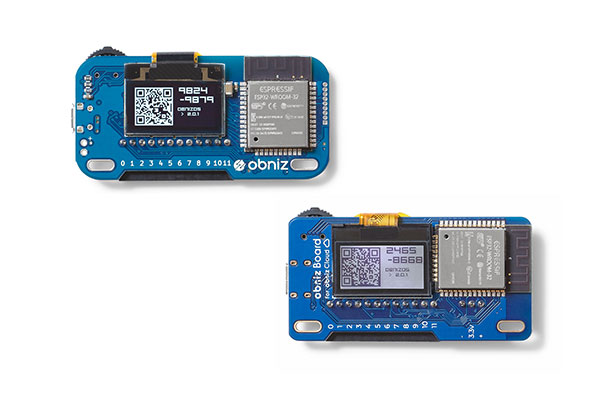LED
LED bright by supplying voltage.
It has two pins anode and cathode.
connect anode to plus and cathode to minus then it bright.
anode is a little bit longer than cathode.

obniz.wired("LED", {anode, cathode})
anode is loger leg.
specify obniz Board io numbers you connected LED.
You need a resistor if you are not using a resistor embeded LED.

// Javascript Example
var led = obniz.wired("LED", {anode:0, cathode:1}); // io0 is connected to anode, io1 is cathode
led.on();
// Javascript Example
var led = obniz.wired("LED", {anode:0}); // io0 is anode. cathode is connected obniz GND other way.
led.on();
on()
Simply, Turning on a LED.
It provide 5V to LED.
// Javascript Example
var led = obniz.wired("LED", {anode:0, cathode:1});
led.on();
off()
Turning off a LED.
// Javascript Example
var led = obniz.wired("LED", {anode:0, cathode:1});
led.off();
output(value)
on, off a LED regarding value.
// Javascript Example
var led = obniz.wired("LED", {anode:0, cathode:1});
led.output(true);
blink(interval_ms)
Start blinking a LED.
default interval is 100msec
// Javascript Example
var led = obniz.wired("LED", {anode:0, cathode:1});
led.blink(); // 100msec
endBlink()
Stop blinking.
LED stops last state.
// Javascript Example
var led = obniz.wired("LED", {anode:0, cathode:1});
led.blink();
led.endBlink();
Supported from: obniz.js 3.5.0





